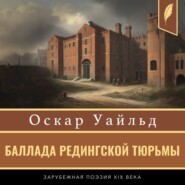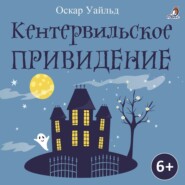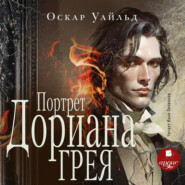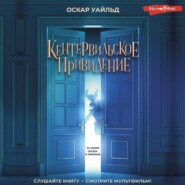По всем вопросам обращайтесь на: info@litportal.ru
(©) 2003-2025.
✖
Fairy Tales / Сказки
Настройки чтения
Размер шрифта
Высота строк
Поля
“Yes, that is just what I want to know,” said the Duck; and she swam away to the end of the pond, and stood upon her head, in order to give her children a good example.
“What a silly question!” cried the Water-rat. “I should expect my devoted friend to be devoted to me, of course.”
“And what would you do in return?” said the little bird, swinging upon a silver spray, and flapping his tiny wings.
“I don’t understand you,” answered the Water-rat.
“Let me tell you a story on the subject,” said the Linnet.
“Is the story about me?” asked the Water-rat. “If so, I will listen to it, for I am extremely fond of fiction.”
“It is applicable to you,” answered the Linnet; and he flew down, and alighting upon the bank, he told the story of The Devoted Friend.
“Once upon a time,” said the Linnet, “there was an honest little fellow named Hans.”
“Was he very distinguished?” asked the Water-rat.
“No,” answered the Linnet, “I don’t think he was distinguished at all, except for his kind heart, and his funny round good-humoured face. He lived in a tiny cottage all by himself, and every day he worked in his garden. In all the country-side there was no garden so lovely as his. Sweet-william grew there, and Gilly-flowers, and Shepherds’-purses, and Fair-maids of France. There were damask Roses, and yellow Roses, lilac Crocuses, and gold, purple Violets and white. Columbine and Ladysmock, Marjoram and Wild Basil, the Cowslip and the Flower-de-luce, the Daffodil and the Clove-Pink bloomed or blossomed in their proper order as the months went by, one flower taking another flower’s place, so that there were always beautiful things to look at, and pleasant odours to smell.
“Little Hans had a great many friends, but the most devoted friend of all was big Hugh the Miller. Indeed, so devoted was the rich Miller to little Hans, that he would never go by his garden without leaning over the wall and plucking a large nosegay, or a handful of sweet herbs, or filling his pockets with plums and cherries if it was the fruit season.
“‘Real friends should have everything in common,’ the Miller used to say, and little Hans nodded and smiled, and felt very proud of having a friend with such noble ideas.
“Sometimes, indeed, the neighbours thought it strange that the rich Miller never gave little Hans anything in return, though he had a hundred sacks of flour stored away in his mill, and six milch cows, and a large flock of woolly sheep; but Hans never troubled his head about these things, and nothing gave him greater pleasure than to listen to all the wonderful things the Miller used to say about the unselfishness of true friendship.
“So little Hans worked away in his garden. During the spring, the summer, and the autumn he was very happy, but when the winter came, and he had no fruit or flowers to bring to the market, he suffered a good deal from cold and hunger, and often had to go to bed without any supper but a few dried pears or some hard nuts. In the winter, also, he was extremely lonely, as the Miller never came to see him then.
“‘There is no good in my going to see little Hans as long as the snow lasts,’ the Miller used to say to his wife, ‘for when people are in trouble they should be left alone, and not be bothered by visitors. That at least is my idea about friendship, and I am sure I am right. So I shall wait till the spring comes, and then I shall pay him a visit, and he will be able to give me a large basket of primroses and that will make him so happy.’
“‘You are certainly very thoughtful about others,’ answered the Wife, as she sat in her comfortable armchair by the big pinewood fire; ‘very thoughtful indeed. It is quite a treat to hear you talk about friendship. I am sure the clergyman himself could not say such beautiful things as you do, though he does live in a three-storied house, and wear a gold ring on his little finger.’
“‘But could we not ask little Hans up here?’ said the Miller’s youngest son. ‘If poor Hans is in trouble I will give him half my porridge, and show him my white rabbits.’
“‘What a silly boy you are!’ cried the Miller; ‘I really don’t know what is the use of sending you to school. You seem not to learn anything. Why, if little Hans came up here, and saw our warm fire, and our good supper, and our great cask of red wine, he might get envious, and envy is a most terrible thing, and would spoil anybody’s nature. I certainly will not allow Hans’ nature to be spoiled. I am his best friend, and I will always watch over him, and see that he is not led into any temptations. Besides, if Hans came here, he might ask me to let him have some flour on credit, and that I could not do. Flour is one thing, and friendship is another, and they should not be confused. Why, the words are spelt differently, and mean quite different things. Everybody can see that.’
“‘How well you talk!’ said the Miller’s Wife, pouring herself out a large glass of warm ale; ‘really I feel quite drowsy. It is just like being in church.’
“‘Lots of people act well,’ answered the Miller; ‘but very few people talk well, which shows that talking is much the more difficult thing of the two, and much the finer thing also’; and he looked sternly across the table at his little son, who felt so ashamed of himself that he hung his head down, and grew quite scarlet, and began to cry into his tea. However, he was so young that you must excuse him.”
“Is that the end of the story?” asked the Water-rat.
“Certainly not,” answered the Linnet, “that is the beginning.”
“Then you are quite behind the age,” said the Water-rat. “Every good story-teller nowadays starts with the end, and then goes on to the beginning, and concludes with the middle. That is the new method. I heard all about it the other day from a critic who was walking round the pond with a young man. He spoke of the matter at great length, and I am sure he must have been right, for he had blue spectacles and a bald head, and whenever the young man made any remark, he always answered ‘Pooh!’ But pray go on with your story. I like the Miller immensely. I have all kinds of beautiful sentiments myself, so there is a great sympathy between us.”
“Well,” said the Linnet, hopping now on one leg and now on the other, “as soon as the winter was over, and the primroses began to open their pale yellow stars, the Miller said to his wife that he would go down and see little Hans.
“‘Why, what a good heart you have!’ cried his Wife; ‘you are always thinking of others. And mind you take the big basket with you for the flowers.’
“So the Miller tied the sails of the windmill together with a strong iron chain, and went down the hill with the basket on his arm.
“‘Good morning, little Hans,’ said the Miller.
“‘Good morning,’ said Hans, leaning on his spade, and smiling from ear to ear.
“‘And how have you been all the winter?’ said the Miller.
“‘Well, really,’ cried Hans, ‘it is very good of you to ask, very good indeed. I am afraid I had rather a hard time of it, but now the spring has come, and I am quite happy, and all my flowers are doing well.’
“‘We often talked of you during the winter, Hans,’ said the Miller, ‘and wondered how you were getting on.’
“‘That was kind of you,’ said Hans; ‘I was half afraid you had forgotten me.’
“‘Hans, I am surprised at you,’ said the Miller; ‘friendship never forgets. That is the wonderful thing about it, but I am afraid you don’t understand the poetry of life. How lovely your primroses are looking, by-the-bye!”
“‘They are certainly very lovely,’ said Hans, ‘and it is a most lucky thing for me that I have so many. I am going to bring them into the market and sell them to the Burgomaster’s daughter, and buy back my wheelbarrow with the money.’
“‘Buy back your wheelbarrow? You don’t mean to say you have sold it? What a very stupid thing to do!’
“‘Well, the fact is,’ said Hans, ‘that I was obliged to. You see the winter was a very bad time for me, and I really had no money at all to buy bread with. So I first sold the silver buttons off my Sunday coat, and then I sold my silver chain, and then I sold my big pipe, and at last I sold my wheelbarrow. But I am going to buy them all back again now.’
“‘Hans,’ said the Miller, ‘I will give you my wheelbarrow. It is not in very good repair; indeed, one side is gone, and there is something wrong with the wheel-spokes; but in spite of that I will give it to you. I know it is very generous of me, and a great many people would think me extremely foolish for parting with it, but I am not like the rest of the world. I think that generosity is the essence of friendship, and, besides, I have got a new wheelbarrow for myself. Yes, you may set your mind at ease, I will give you my wheelbarrow.’
“‘Well, really, that is generous of you,’ said little Hans, and his funny round face glowed all over with pleasure. ‘I can easily put it in repair, as I have a plank of wood in the house.’
“‘A plank of wood!’ said the Miller; ‘why, that is just what I want for the roof of my barn. There is a very large hole in it, and the corn will all get damp if I don’t stop it up. How lucky you mentioned it! It is quite remarkable how one good action always breeds another. I have given you my wheelbarrow, and now you are going to give me your plank. Of course, the wheelbarrow is worth far more than the plank, but true, friendship never notices things like that. Pray get it at once, and I will set to work at my barn this very day.’
“‘Certainly,’ cried little Hans, and he ran into the shed and dragged the plank out.
“‘It is not a very big plank,’ said the Miller, looking at it, ‘and I am afraid that after I have mended my barn-roof there won’t be any left for you to mend the wheelbarrow with; but, of course, that is not my fault. And now, as I have given you my wheelbarrow, I am sure you would like to give me some flowers in return. Here is the basket, and mind you fill it quite full.’
“‘Quite full?’ said little Hans, rather sorrowfully, for it was really a very big basket, and he knew that if he filled it he would have no flowers left for the market and he was very anxious to get his silver buttons back.
“‘Well, really,’ answered the Miller, ‘as I have given you my wheelbarrow, I don’t think that it is much to ask you for a few flowers. I may be wrong, but I should have thought that friendship, true friendship, was quite free from selfishness of any kind.’
“‘My dear friend, my best friend,’ cried little Hans, ‘you are welcome to all the flowers in my garden. I would much sooner have your good opinion than my silver buttons, any day’; and he ran and plucked all his pretty primroses, and filled the Miller’s basket.
“‘Good-bye, little Hans,’ said the Miller, as he went up the hill with the plank on his shoulder, and the big basket in his hand.
“‘Good-bye,’ said little Hans, and he began to dig away quite merrily, he was so pleased about the wheelbarrow.
“The next day he was nailing up some honeysuckle against the porch, when he heard the Miller’s voice calling to him from the road. So he jumped off the ladder, and ran down the garden, and looked over the wall.
“There was the Miller with a large sack of flour on his back.
“‘Dear little Hans,’ said the Miller, ‘would you mind carrying this sack of flour for me to market?’
“‘Oh, I am so sorry,’ said Hans, ‘but I am really very busy to-day. I have got all my creepers to nail up, and all my flowers to water, and all my grass to roll.’
“What a silly question!” cried the Water-rat. “I should expect my devoted friend to be devoted to me, of course.”
“And what would you do in return?” said the little bird, swinging upon a silver spray, and flapping his tiny wings.
“I don’t understand you,” answered the Water-rat.
“Let me tell you a story on the subject,” said the Linnet.
“Is the story about me?” asked the Water-rat. “If so, I will listen to it, for I am extremely fond of fiction.”
“It is applicable to you,” answered the Linnet; and he flew down, and alighting upon the bank, he told the story of The Devoted Friend.
“Once upon a time,” said the Linnet, “there was an honest little fellow named Hans.”
“Was he very distinguished?” asked the Water-rat.
“No,” answered the Linnet, “I don’t think he was distinguished at all, except for his kind heart, and his funny round good-humoured face. He lived in a tiny cottage all by himself, and every day he worked in his garden. In all the country-side there was no garden so lovely as his. Sweet-william grew there, and Gilly-flowers, and Shepherds’-purses, and Fair-maids of France. There were damask Roses, and yellow Roses, lilac Crocuses, and gold, purple Violets and white. Columbine and Ladysmock, Marjoram and Wild Basil, the Cowslip and the Flower-de-luce, the Daffodil and the Clove-Pink bloomed or blossomed in their proper order as the months went by, one flower taking another flower’s place, so that there were always beautiful things to look at, and pleasant odours to smell.
“Little Hans had a great many friends, but the most devoted friend of all was big Hugh the Miller. Indeed, so devoted was the rich Miller to little Hans, that he would never go by his garden without leaning over the wall and plucking a large nosegay, or a handful of sweet herbs, or filling his pockets with plums and cherries if it was the fruit season.
“‘Real friends should have everything in common,’ the Miller used to say, and little Hans nodded and smiled, and felt very proud of having a friend with such noble ideas.
“Sometimes, indeed, the neighbours thought it strange that the rich Miller never gave little Hans anything in return, though he had a hundred sacks of flour stored away in his mill, and six milch cows, and a large flock of woolly sheep; but Hans never troubled his head about these things, and nothing gave him greater pleasure than to listen to all the wonderful things the Miller used to say about the unselfishness of true friendship.
“So little Hans worked away in his garden. During the spring, the summer, and the autumn he was very happy, but when the winter came, and he had no fruit or flowers to bring to the market, he suffered a good deal from cold and hunger, and often had to go to bed without any supper but a few dried pears or some hard nuts. In the winter, also, he was extremely lonely, as the Miller never came to see him then.
“‘There is no good in my going to see little Hans as long as the snow lasts,’ the Miller used to say to his wife, ‘for when people are in trouble they should be left alone, and not be bothered by visitors. That at least is my idea about friendship, and I am sure I am right. So I shall wait till the spring comes, and then I shall pay him a visit, and he will be able to give me a large basket of primroses and that will make him so happy.’
“‘You are certainly very thoughtful about others,’ answered the Wife, as she sat in her comfortable armchair by the big pinewood fire; ‘very thoughtful indeed. It is quite a treat to hear you talk about friendship. I am sure the clergyman himself could not say such beautiful things as you do, though he does live in a three-storied house, and wear a gold ring on his little finger.’
“‘But could we not ask little Hans up here?’ said the Miller’s youngest son. ‘If poor Hans is in trouble I will give him half my porridge, and show him my white rabbits.’
“‘What a silly boy you are!’ cried the Miller; ‘I really don’t know what is the use of sending you to school. You seem not to learn anything. Why, if little Hans came up here, and saw our warm fire, and our good supper, and our great cask of red wine, he might get envious, and envy is a most terrible thing, and would spoil anybody’s nature. I certainly will not allow Hans’ nature to be spoiled. I am his best friend, and I will always watch over him, and see that he is not led into any temptations. Besides, if Hans came here, he might ask me to let him have some flour on credit, and that I could not do. Flour is one thing, and friendship is another, and they should not be confused. Why, the words are spelt differently, and mean quite different things. Everybody can see that.’
“‘How well you talk!’ said the Miller’s Wife, pouring herself out a large glass of warm ale; ‘really I feel quite drowsy. It is just like being in church.’
“‘Lots of people act well,’ answered the Miller; ‘but very few people talk well, which shows that talking is much the more difficult thing of the two, and much the finer thing also’; and he looked sternly across the table at his little son, who felt so ashamed of himself that he hung his head down, and grew quite scarlet, and began to cry into his tea. However, he was so young that you must excuse him.”
“Is that the end of the story?” asked the Water-rat.
“Certainly not,” answered the Linnet, “that is the beginning.”
“Then you are quite behind the age,” said the Water-rat. “Every good story-teller nowadays starts with the end, and then goes on to the beginning, and concludes with the middle. That is the new method. I heard all about it the other day from a critic who was walking round the pond with a young man. He spoke of the matter at great length, and I am sure he must have been right, for he had blue spectacles and a bald head, and whenever the young man made any remark, he always answered ‘Pooh!’ But pray go on with your story. I like the Miller immensely. I have all kinds of beautiful sentiments myself, so there is a great sympathy between us.”
“Well,” said the Linnet, hopping now on one leg and now on the other, “as soon as the winter was over, and the primroses began to open their pale yellow stars, the Miller said to his wife that he would go down and see little Hans.
“‘Why, what a good heart you have!’ cried his Wife; ‘you are always thinking of others. And mind you take the big basket with you for the flowers.’
“So the Miller tied the sails of the windmill together with a strong iron chain, and went down the hill with the basket on his arm.
“‘Good morning, little Hans,’ said the Miller.
“‘Good morning,’ said Hans, leaning on his spade, and smiling from ear to ear.
“‘And how have you been all the winter?’ said the Miller.
“‘Well, really,’ cried Hans, ‘it is very good of you to ask, very good indeed. I am afraid I had rather a hard time of it, but now the spring has come, and I am quite happy, and all my flowers are doing well.’
“‘We often talked of you during the winter, Hans,’ said the Miller, ‘and wondered how you were getting on.’
“‘That was kind of you,’ said Hans; ‘I was half afraid you had forgotten me.’
“‘Hans, I am surprised at you,’ said the Miller; ‘friendship never forgets. That is the wonderful thing about it, but I am afraid you don’t understand the poetry of life. How lovely your primroses are looking, by-the-bye!”
“‘They are certainly very lovely,’ said Hans, ‘and it is a most lucky thing for me that I have so many. I am going to bring them into the market and sell them to the Burgomaster’s daughter, and buy back my wheelbarrow with the money.’
“‘Buy back your wheelbarrow? You don’t mean to say you have sold it? What a very stupid thing to do!’
“‘Well, the fact is,’ said Hans, ‘that I was obliged to. You see the winter was a very bad time for me, and I really had no money at all to buy bread with. So I first sold the silver buttons off my Sunday coat, and then I sold my silver chain, and then I sold my big pipe, and at last I sold my wheelbarrow. But I am going to buy them all back again now.’
“‘Hans,’ said the Miller, ‘I will give you my wheelbarrow. It is not in very good repair; indeed, one side is gone, and there is something wrong with the wheel-spokes; but in spite of that I will give it to you. I know it is very generous of me, and a great many people would think me extremely foolish for parting with it, but I am not like the rest of the world. I think that generosity is the essence of friendship, and, besides, I have got a new wheelbarrow for myself. Yes, you may set your mind at ease, I will give you my wheelbarrow.’
“‘Well, really, that is generous of you,’ said little Hans, and his funny round face glowed all over with pleasure. ‘I can easily put it in repair, as I have a plank of wood in the house.’
“‘A plank of wood!’ said the Miller; ‘why, that is just what I want for the roof of my barn. There is a very large hole in it, and the corn will all get damp if I don’t stop it up. How lucky you mentioned it! It is quite remarkable how one good action always breeds another. I have given you my wheelbarrow, and now you are going to give me your plank. Of course, the wheelbarrow is worth far more than the plank, but true, friendship never notices things like that. Pray get it at once, and I will set to work at my barn this very day.’
“‘Certainly,’ cried little Hans, and he ran into the shed and dragged the plank out.
“‘It is not a very big plank,’ said the Miller, looking at it, ‘and I am afraid that after I have mended my barn-roof there won’t be any left for you to mend the wheelbarrow with; but, of course, that is not my fault. And now, as I have given you my wheelbarrow, I am sure you would like to give me some flowers in return. Here is the basket, and mind you fill it quite full.’
“‘Quite full?’ said little Hans, rather sorrowfully, for it was really a very big basket, and he knew that if he filled it he would have no flowers left for the market and he was very anxious to get his silver buttons back.
“‘Well, really,’ answered the Miller, ‘as I have given you my wheelbarrow, I don’t think that it is much to ask you for a few flowers. I may be wrong, but I should have thought that friendship, true friendship, was quite free from selfishness of any kind.’
“‘My dear friend, my best friend,’ cried little Hans, ‘you are welcome to all the flowers in my garden. I would much sooner have your good opinion than my silver buttons, any day’; and he ran and plucked all his pretty primroses, and filled the Miller’s basket.
“‘Good-bye, little Hans,’ said the Miller, as he went up the hill with the plank on his shoulder, and the big basket in his hand.
“‘Good-bye,’ said little Hans, and he began to dig away quite merrily, he was so pleased about the wheelbarrow.
“The next day he was nailing up some honeysuckle against the porch, when he heard the Miller’s voice calling to him from the road. So he jumped off the ladder, and ran down the garden, and looked over the wall.
“There was the Miller with a large sack of flour on his back.
“‘Dear little Hans,’ said the Miller, ‘would you mind carrying this sack of flour for me to market?’
“‘Oh, I am so sorry,’ said Hans, ‘but I am really very busy to-day. I have got all my creepers to nail up, and all my flowers to water, and all my grass to roll.’


















